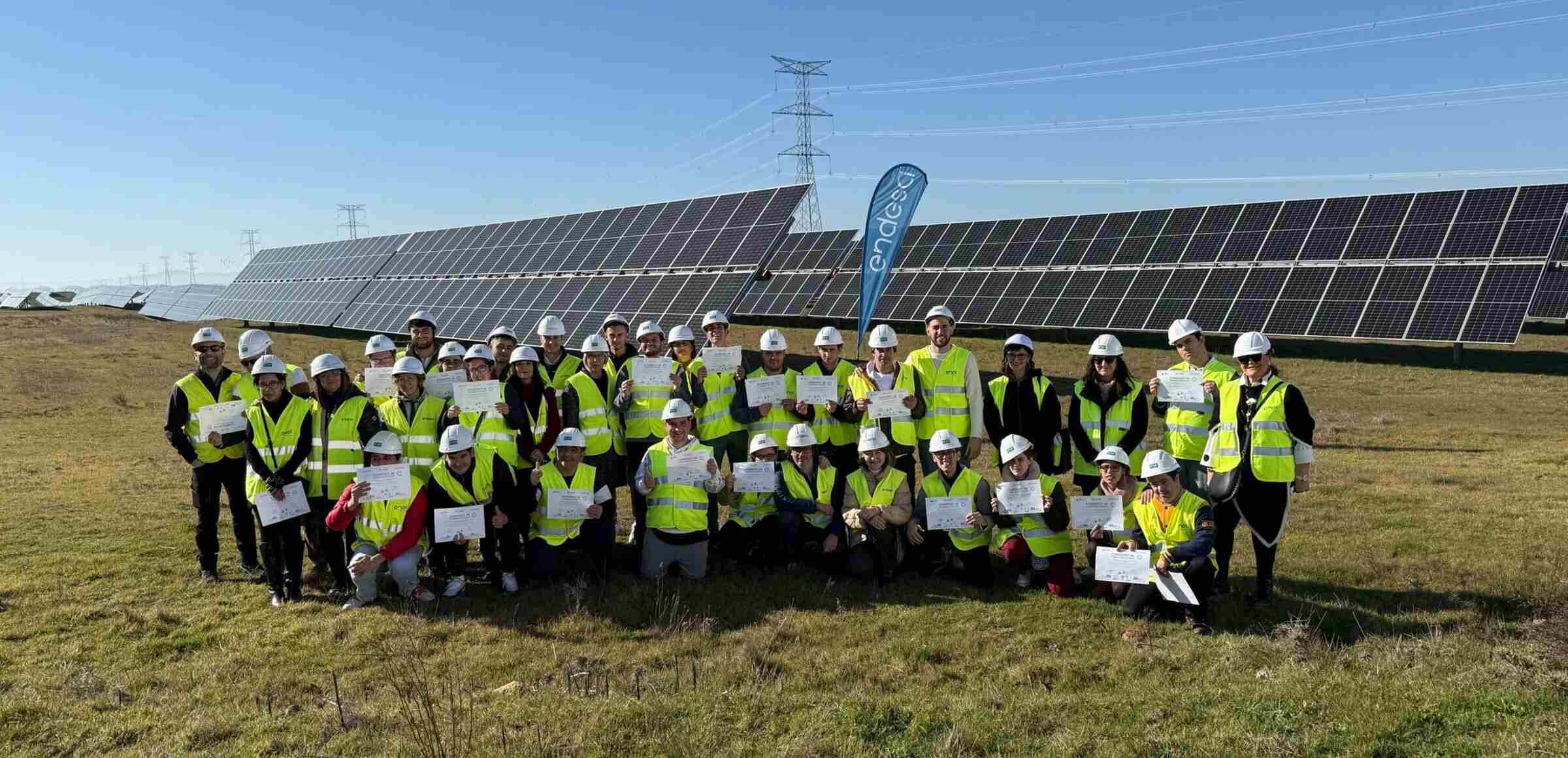
Transforming the rural environment
The COMPOST-IN project has successfully improved employment opportunities for people with disabilities in rural areas. This programme, the result of a partnership between FUNDACIÓN JUAN XXIII and Endesa, has provided over 300 individuals with intellectual disabilities access to training in composting and environmental tasks at renewable energy plants. COMPOST-IN combines online learning with hands-on experience, enhancing digital skills and facilitating labour insertion in rural communities.
By Alberto Muñoz
What do we do at the FUNDACIÓN JUAN XXIII Vocational Training Centre?
The FUNDACIÓN JUAN XXIII Vocational Training Centre is a pioneer in offering educational solutions for people at risk of or experiencing psychosocial vulnerability. In particular, it focuses on those with special educational needs due to intellectual disabilities and/or mental health conditions.
Fifteen years ago, we began adapting our professional certifications to extend their duration to facilitate the acquisition of theoretical knowledge and the associated practical skills.
Additionally, we develop training programmes in collaboration with various companies, such as Endesa. Lastly, in 2025, we will take on the challenge of extending the duration of our vocational education programmes.
For all these reasons, we are leaders in providing accessible and inclusive vocational training for all individuals.
COMPOST-IN, creating employment opportunities for individuals with intellectual disabilities in rural areas
Besides our ongoing training initiatives, a key project we have developed in partnership with Endesa since 2022 deserves special attention. This nationwide programme is designed for individuals with intellectual disabilities and features a predominantly online format: the COMPOST-IN project.
This project is possible through partnerships with local organisations, such as Plena Inclusión in Villafranca de los Barros and the Proserpina Occupational Centre in Mérida. These organisations handle the design and delivery of training to their students under the guidance and supervision of FUNDACIÓN JUAN XXIII.
To ensure it is easy to follow, the course has been designed in an accessible format that helps participants to take in the content. Furthermore, local organisations play a key role in mentoring students, while the foundation trains their staff to promote the effective development and implementation of course materials in real-world settings. Far from being a purely theoretical course, COMPOST-IN focuses on developing practical skills and competencies. Participants engage in hands-on activities such as operating composting bins, clearing vegetation, and managing the waste generated at designated facilities.
Thanks to this joint initiative between Endesa and FUNDACIÓN JUAN XXIII, over 300 individuals with intellectual disabilities in rural areas have gained access to high-quality training. This placed them at the heart of the ecological transition, digital transformation, and rural development processes.
- In regards to the ecological transition process, the training focuses on composting and the maintenance of forest buffer zones at renewable energy plants, particularly photovoltaic farms. It allows participants to gain the knowledge and skills required to perform various tasks that help mitigate the environmental impact of these facilities.
- As for digital transformation, according to Spain’s National Statistics Institute, only one in three individuals with intellectual disabilities regularly uses the internet. This challenge is even greater in rural areas, where limited access to technological resources further hinders individuals with intellectual disabilities from participating in the digital world. This is why our online training programmes play a crucial role in bringing this group closer to technology, enabling participants to acquire the basic digital skills now required in virtually any job.
- Lastly, the growing competition and the demand for specialised skills in today’s job market also affect the employment prospects of individuals with intellectual disabilities. Therefore, while access to adapted training opportunities is already limited in major cities, this disparity is even more pronounced in rural areas, where resources are not as readily available. In this context, COMPOST-IN has delivered tangible results: just in its very first year, 39% of participants successfully entered the workforce, with 8% finding jobs in renewable energy plants.
Ultimately, this powerful alliance between FUNDACIÓN JUAN XXIII and Endesa is creating employment opportunities for this community. This way, itbreaks down barriers that have long kept individuals with intellectual disabilities in rural areas from accessing high-quality, tailored vocational training programmes that add value to the job market closest to their community.









